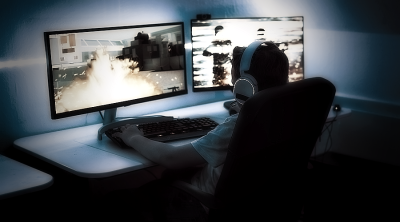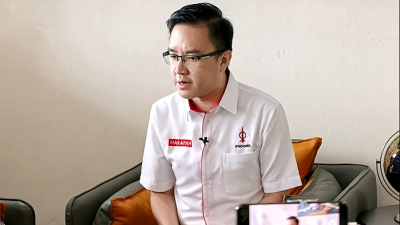By Charles Chia
The battle for the control of Parliament, hence the post of prime minister, has been reignited.
The first salvo was officially launched by Datuk Seri Anwar Ibrahim when he had an audience with the Yang di-Pertuan Agong on October 13 at the Palace, presenting the evidence that he had the majority of parliamentarians supporting him.
The "verification" by the Agong to establish whether DSAI has got the majority may look straightforward, but it turns out to be complex.
The Agong has to meet all the leaders of the parties, and this takes time. Incidentally, time is what DSAI can't afford. A day is too long in politics.
Many expected DSAI to be declared the prime minister, but when this did not happen, some commentators concluded that DSAI had lost his quest for the top post.
People who know the rules of the game, including DSAI, are aware that this would not happen automatically because there is a sitting PM and the Agong would not like to be dragged into a controversy by sacking him. The democratic convention is to resolve it in the Parliament, the supreme house of the people.
Possible scenarios
The following scenarios could possibly happen when the PM loses his majority. He resigns or convenes a sitting of Parliament to ask the Speaker to bring forward the no-confidence motion as stipulated in the Constitution.
If he wins, he continues as PM. If he loses, he can either resign or recommend to the Agong to dissolve the Parliament.
If he resigns, the Agong can appoint a new PM whom he believes commands the majority of MPs. If the PM recommends a dissolution of the Parliament, the Agong can either accept it and call for a general election, or reject it and appoint a new PM.
In other words, in the event the incumbent PM loses his majority, the ultimate decision lies with the Agong to either call for a snap election or appoint a leader who commands the majority of the House.
A snap election seems to be in order and is the most democratic way to exit from this impasse. However, except for Umno and PAS, all the rest including the party of PM Muhyiddin, for electoral considerations, are not in favor of it. The voters who had given Pakatan Harapan the mandate in GE14 would also feel unjust and betrayed, and question the necessity of a fresh election when their leader DSAI has regained the majority of the House.
In reality, under the onslaught of the COVID-19 pandemic, it is almost unthinkable to hold a general election. More importantly, Malaysia is presently in the midst of a worsening pandemic although it was regarded one of the most successful countries in the world in controlling the spread of the virus.
Few would dispute the fact that the spike is due to the recent snap election in Sabah. Therefore, no one in the ruling circle would like to take the responsibility of calling a general election.
Uncertainty looms
Since PM Muhyiddin's majority is collapsing and a snap election cannot be called, the only option left is for the Agong to appoint a leader who has the majority as the PM.
This is due process of a democracy. It sounds uncomplicated but is not so in Malaysia because we have a detestable culture of frog-hopping among our parliamentarians.
The Rakyat find abominable the petty politicking, maneuvering, back-stabbing, horse-trading, payoffs, the use of unprincipled enticing of all sorts, proliferating among our parliamentarians since the Sheraton Move this February which saw the downfall of the PH government. This has been used by some rich crafty senior politicians to promote their candidate or to eliminate their political rivals, disregarding all moral and ideological bottomlines.
Following the visit of DSAI to the Palace, the longest serving MP from Umno Tengku Razaleigh or popularly known as Ku Li, was also summoned to the Palace. This sparks off speculations that Ku Li could be the black horse to replace Tan Sri Muhyiddin Yassin.
Ku Li is Tun Mahathir's plot to block Anwar. Yes, Mahathir again!
But a quick computation shows that Ku Li's support will not be better than Muhyiddin's and would certainly be a Malay-Muslim government. The horse-trading is so intense within Umno and Bersatu. There are vigorous rivalry and conflict of interests between the two parties. How can Ku Li do better than Muhyiddin? The whole saga is going to be repeated and end up with another post-Sheraton weak government. Worse, the Ku Li scheme may just be still-born.
State of emergency
A grim scenario has been painted by political pundits — PM Muhyiddin will not resign on his own accord; and at the same time any tabling of a motion of no-confidence will not be allowed by the government-friendly Speaker of the House.
This is against the convention of a democratic rule. Eventually, it may provoke a grave constitutional crisis.
Already, some pro-government quarters are floating the idea of suspending the Parliament or declaring a state of emergency, or both. However, this remains purely a speculation. With due respect to PM Muhyiddin, at the moment, he pays more attention to containing the pandemic than open politicking. He is keeping his cards close to his chest.
On the other camp, one worrisome point surrounding Anwar's number claim is the rumor that those supporting him in Umno are mainly "outcasts" who ironically were rejected by voters and had put PH into power.
If this is true, it is normal for the Rakyat and PH supporters to know how Anwar is going to handle them. Their allegiance to PH would depend on what Anwar can offer them, at what price to the Rakyat?
The politicians may be enjoying their game of merry-go-round but the Rakyat are getting fed up with their behavior. For how long more do the Rakyat have to tolerate this gutter politics? The Rakyat are anxious to see a stronger and viable government to handle the spread of the pandemic and to solve the unprecedented economic crisis caused by the pandemic. Its full impacts are yet to be felt.
Formation of a dream government
The Rakyat would like to see a strong government emerge to take care of their health and economic well-being.
On paper, Anwar's block seems to be more solid having the full backing of all the component parties in Pakatan Harapan, namely PKR, DAP and Amanah with a total of 91 MPs. All of them have committed to Reformasi for more than 20 years. They are multi-ethnic and were given the mandate by voters in the last election. A majority government could be formed with PH as the nucleus.
Regional parties like Warisan of Sabah and PRS of Sarawak, which are committed to multi-ethnic politics for Malaysia, are PH's natural allies. This can be reinforced further by some personalities from other parties like Umno, Bersatu or even PAS. They should put aside their political rivalry and animosity and join forces to tackle the health and economic crises caused by the pandemic.
Once such a government is formed, the leadership line-up, including the top post, can be discussed.
It might be difficult to realize but this is the wish of all Malaysians.
This pandemic might be a blessing in disguise. It might help Malaysia get rid of her frog-demic. We must have hope at the moment of despair.
(Charles Chia is Member of Monsoons Malaysia.)

ADVERTISEMENT
ADVERTISEMENT


































